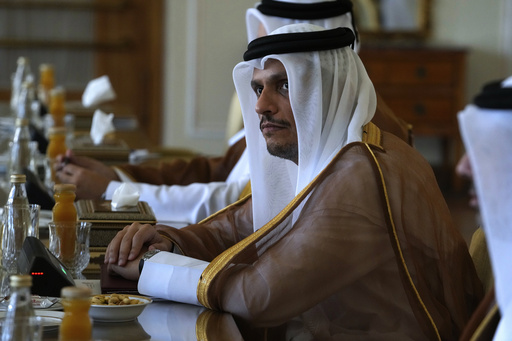President Joe Biden’s chief Middle East adviser, Brett McGurk, engaged in discussions with senior Qatari leaders in Doha regarding progressing towards a ceasefire and hostage agreement between Israel and Hamas. These talks coincided with Qatar’s Prime Minister Sheikh Mohammed bin Abdulrahman Al Thani’s recent meeting with Iran’s President Masoud Pezeshkian. Efforts to reach a ceasefire between Israel and Hamas are transitioning to Doha this week following intense negotiations in Cairo, where talks at the working-group level are set to resume on Wednesday. An Israeli delegation is scheduled to travel to Doha for further discussions.
Tensions have been escalating between Israel and Iran, along with Iran-backed militant groups like Hamas, Hezbollah, and the Houthis. Iran has threatened retaliation against Israel following the assassination of Hamas political leader Ismail Haniyeh in Iran last month. Ayatollah Ali Khamenei of Iran expressed willingness to reopen negotiations with the United States concerning Iran’s nuclear program. This development surfaced shortly after the new Iranian president’s visit and amidst indirect talks facilitated by Oman and Qatar, traditional interlocutors between the U.S. and Iran.
During his tenure, Biden urged Iran to adhere to the 2015 nuclear deal negotiated during the Obama administration, which was abandoned by former President Donald Trump in 2018. Iran has since disregarded the deal’s restrictions, enriching uranium to levels nearing weapons-grade. In light of the October 7 attack on Israel by Iran-backed Hamas, the U.S. has momentarily sidelined efforts to reinstate the nuclear agreement. The new Iranian President, Pezeshkian, succeeded the late President Ebrahim Raisi and has close ties with ex-Foreign Minister Mohammad Javad Zarif, who played a key role in the 2015 nuclear deal.
These diplomatic movements are crucial as the region navigates challenging dynamics impacting international relations and security in the Middle East.


